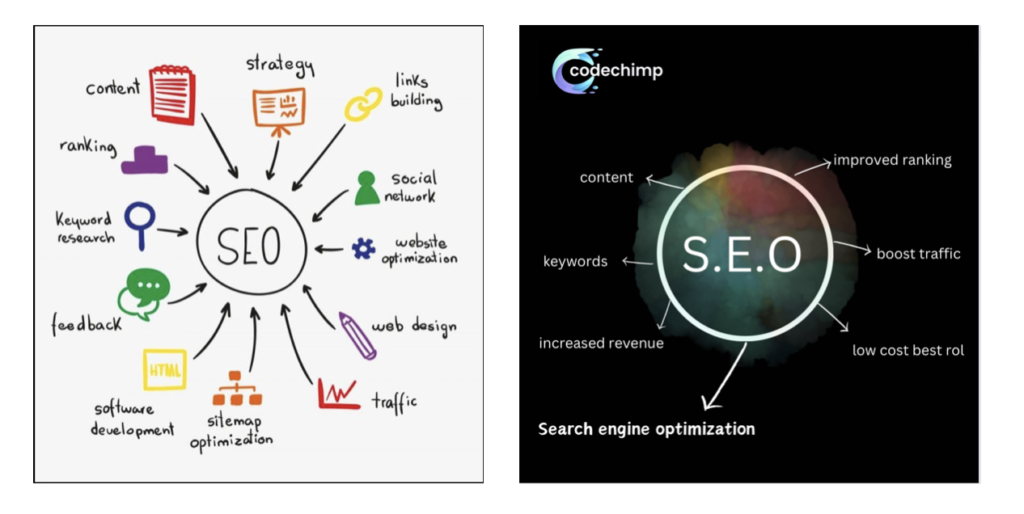SEARCH ENGINE OPTIMISATION
In today’s digital landscape, where competition for online visibility is fierce, mastering the art of Search Engine Optimization (SEO) is essential for any business or individual looking to thrive online. SEO is the practice of optimizing your website to rank higher in search engine results pages (SERPs), driving organic traffic and increasing your online presence. In this comprehensive guide, we’ll explore the fundamentals of SEO and provide actionable strategies to help you boost your website’s visibility and attract more visitors.

Chapter 1: Understanding the Fundamentals of SEO
- What is SEO and why is it important?
- The evolution of search engines and their algorithms
- The role of keywords in SEO and understanding user intent
- On-page vs. Off-page , SEO: Key differences and strategies
- The importance of technical SEO for website performance
Chapter 2: On-Page SEO Best Practices
- Creating high-quality, relevant content that resonates with your target audience
- Optimizing title tags, meta descriptions, and heading tags for improved visibility
- Conducting keyword research and strategically integrating keywords into your content
- Enhancing user experience through mobile optimization and fast-loading pages
- Implementing internal linking strategies to improve site navigation and crawlability
Chapter 3: Off-Page SEO Strategies
- Building high-quality backlinks from reputable websites in your niche
- Leveraging social media platforms to amplify your content and engage with your audience
- Online reputation management and the importance of brand mentions
- Guest blogging and influencer outreach as effective link-building tactics
- Local SEO optimization for businesses targeting specific geographic regions
Chapter 4: Technical SEO Essentials
- Optimizing website architecture and navigation for improved user experience and crawlability
- Implementing schema markup to enhance search engine visibility and rich snippets
- Creating and submitting XML sitemaps to help search engines crawl and index your website
- Resolving technical issues such as crawl errors, broken links, and duplicate content
- Monitoring website performance with tools like Google Search Console and Bing Webmaster Tools
Chapter 5: Measuring and Analyzing SEO Performance
- Setting clear goals and KPIs to measure the success of your SEO efforts
- Utilizing tools like Google Analytics to track website traffic, user behavior, and conversions
- Monitoring keyword rankings and search engine visibility to gauge your website’s performance
- Analyzing backlink profiles and domain authority to assess your website’s authority and relevance
- Making data-driven decisions to continuously optimize and improve your SEO strategy
Chapter 6: Advanced SEO Techniques and Future Trends
- Voice search optimization and the rise of AI-driven search assistants
- Video SEO strategies for platforms like YouTube and Vimeo
- Optimizing for featured snippets and other rich search results
- Staying informed about algorithm updates and adapting your strategy accordingly
- Embracing emerging trends in SEO, such as mobile-first indexing and user experience optimization

